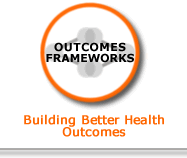Rationale
For instance, there is evidence that:
- the promotion of secure attachment and sensitive, responsive parenting has the potential to reduce health inequalities in Scotland. [1]
- there is a link between socio-economic disadvantage during the early years and health inequalities, but the opportunity to reduce the impact of these inequalities is likely to decline with age. [2]
- life course approach to the early years can potentially reduce the negative impact of their family circumstances. [3]
- home visiting interventions; early year’s education / child care and enhanced specialist early intervention programmes effectively promote child development and wellbeing in the early years. These can reduce the risk of poor outcomes for economically disadvantaged children in both the short and longer term. [3]
As discussed in section 7 (focusing on inequalities) and section 8 (external factors) of the full outcomes framework, a child’s early life circumstances and experiences shape their physical, social, mental, cognitive and emotional development, and negative experiences can have a lifelong impact on health, learning and behaviour. Action to reduce the impact of poverty can mitigate against these risk factors. For instance, there is evidence that effective interventions to address the health impact associated with child poverty include: [3]
-
interventions which maximise household income and resources
intensive
-
support to families who are experiencing or who are most likely to experience poorer outcomes. This includes the provision of intensive home visiting and preschool education/childcare.
-
potentially effective interventions for tackling the underlying social causes of child poverty include addressing structural changes to the economic, tax and benefits systems and legislative controls and enforcement.
References :
-
Scott E. Briefing on Attachment. NHS Health Scotland; 2012. Available from: www.healthscotland.com/documents/5755.aspx
-
Macdonald W, Beck S, Scott E. Briefing on child poverty. NHS Health Scotland; 2013. Available from: www.healthscotland.com/documents/20578.aspx
-
Scott E, Woodman K. Guidance about Effective Interventions to Support Parents, Their Infants and Children in the Early Years. A paper to the Scottish Government Early Years Taskforce; 2012. Available from (external link, 232KB): www.scotland.gov.uk/Resource/0041/00413580.pdf
|


